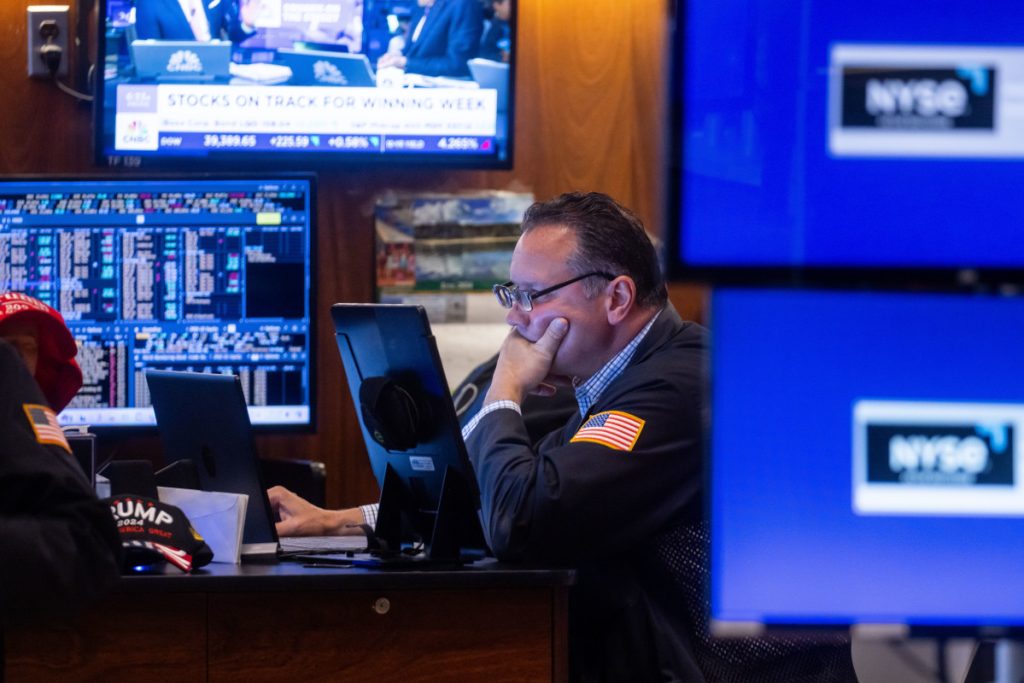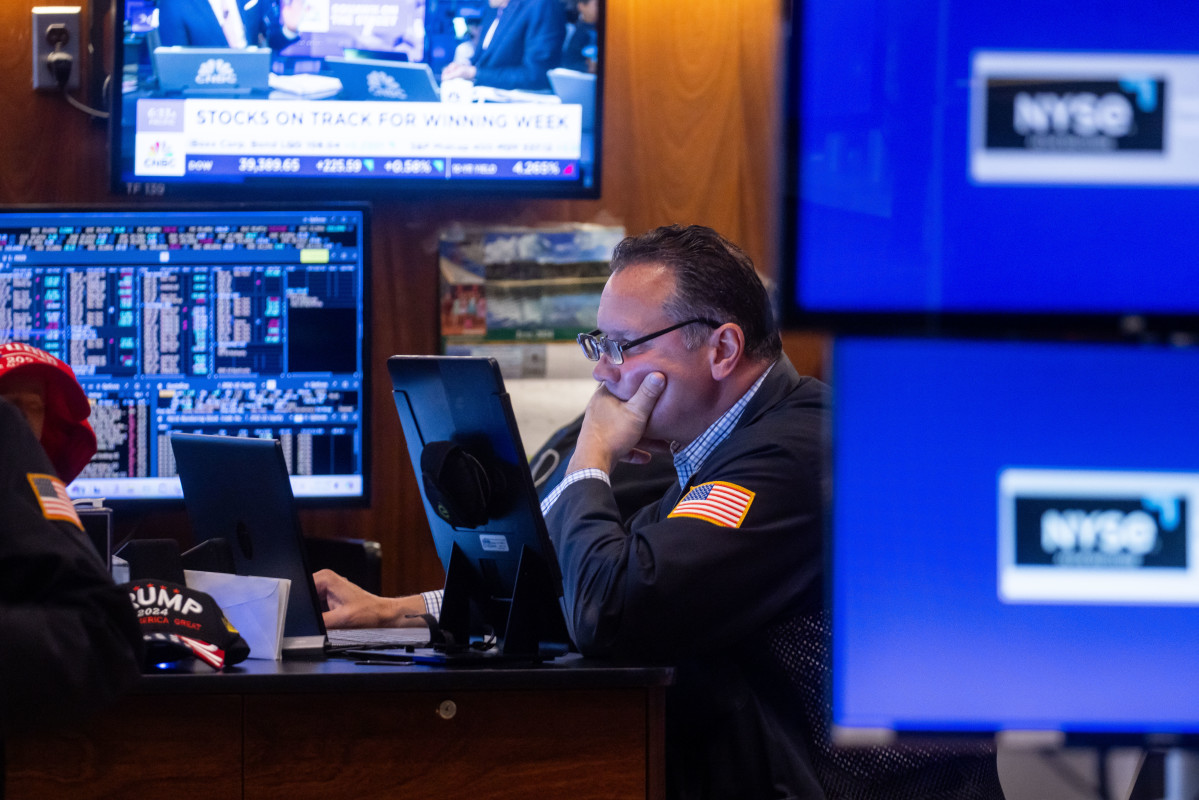Veteran Wall Street trader's move will surprise Nvidia investors


This article is based on TheStreet’s Stock & Markets Podcast, Episode 4. Hosted by the veteran Wall Street investor Chris Versace, the weekly podcasts are available early to members of TheStreetPro investing club.
One bucket or two?
Now, we’re not talking about kicking the bucket, a bucket of blood, or the song by the Kings of Leon.
💵💰Don’t miss the move: Subscribe to TheStreet’s free daily newsletter 💰
This is about investing buckets, and TheStreet’s Todd Campbell recently explained his approach to Chris Versace, lead portfolio manager for TheStreet Pro Portfolio.
A self-professed “stock market junkie,” Campbell loves everything that has to do with the markets.
Related: Chipmakers like Nvidia, AMD get a gift from Washington
In his career he’d sold research to hedge funds and mutual funds for 20-plus years and wrote TheStreet Smarts column for TheStreet Pro. His resume also includes a tenure as editor in chief for TheStreet.
“I think I’ve tried every single investment style known to mankind with mixed results,” he said. “And all of that has been part of a journey for me that has brought me to something I guess I’d call opportunistic buy and hold.”
Veteran investor changes Nvidia position
Campbell discussed Warren Buffett’s investing method. Buffett, who recently said he would retire at year’s end as CEO of Berkshire Hathaway (BRK.A) (BRK.B) , buys stocks at prices that he thinks are fair, “where he’s going to have solid risk-reward, he’s going to make some money,” Campbell said.
“But he is ruthless,” Campbell said. “If he buys something and his mind changes, that stock is gone from Berkshire Hathaway’s portfolio within a quarter or two, or quickly, he can unwind it, depending on how much he bought.”
💵💰 Join us for TheStreet’s Live Quarterly Meeting on May 14th 💰💵
Campbell has all his stocks in two buckets: forever and rental. The “forever” stocks are the ones he has no timetable to sell, such as AI-chip colossus Nvidia (NVDA) , which is scheduled to report first-quarter earnings on May 28.
“I’ve owned Nvidia since 2017 and I bought it because I believe that their [graphics processing units] were better than AMD’s (AMD) and anybody else’s,” he said.
More Nvidia:
- Will Nvidia get hit hard by AI capex risk?
- Analysts revise Nvidia price target on chip demand
- Surprising China news sends Nvidia stock tumbling
“And I believe that GPUs were the best solution for gaming and for crypto. That was my original thesis, that they were going to enjoy revenue strength and profit growth off of that.”
Campbell added that the thesis has changed as the market has changed and as Nvidia’s business has changed, “but there was really no reason for me to wholesale sell it.”
“Why did you sell Nvidia … in April?” Versace asked.
“I am very concerned about my exposure when I think that the market risk becomes extremely uncertain,” Campbell said. “A stock like Nvidia, that represented a fairly large portion of my portfolio, I think it was 15 to 20%. I didn’t want to take the chance that thing was going to roll over and really bury me.”
He added: ”Nvidia is still my largest position, but at the end of the day I still look at Nvidia and I say, ‘semiconductors are a commodity. It’s a cyclical. Semiconductors are cyclical.’ So it depends on where you are in the cycle.”
Nvidia has been put through the wringer over the past several months and the shares are down nearly 13% year-to-date.
Investor Campbell: Market fears seem resolved
The chipmaker’s stock surged on May 7 as the Trump administration prepared to rescind what’s known as the AI diffusion rule, effectively stopping a set of artificial intelligence chip controls from taking effect later this month, CNBC reported.
“I think that it’s prudent when things become incredibly uncertain to play a little bit of defense and pay a little protection,” Campbell said. “I have more cash now — I think I’m at 40%, which is massive for me, probably the most cash since 2022.”
As far as the rental stocks, Campbell said he goes in a position-trading mindset that maybe he’ll own them for three to nine months.
“But if I make a lot of money in a week, I’ll be gone,” he said. “If I lose a lot of money in a week, I’ll be gone. So for me, it’s not a hard-and-fast ownership rule, either for a forever or a rental stock. It’s more of a mindset.”
Campbell noted that he did well with SoundHound AI (SOUN) , a voice artificial intelligence company founded in 2005.
“It was quite a hot stock,” he said. “I felt like we were at a point in the AI cycle where people were going to start looking beyond Nvidia for other ideas, and that proved to be correct. The stock made a really nice move up, but it’s not something that I wanted to own forever.”
Related: Analysts reboot AMD stock price targets ahead of earnings
And given the current market uncertainty right now, Campbell said, SoundHound doesn’t fit into the picture.
“The doesn’t mean I mean I might not consider it again, but you can’t be emotionally attached to these things,” he said.
Versace turned the conversation to the subject of trade deals in light of the Trump administration’s aggressive tariff policy.
“Everybody hopes that it’s going to be trade deals, but the market has a way of frustrating the masses,” he said. “A lot of people believe that we’re going to come up with these trade deals and that’s going to be what causes the market to soar to new highs. I don’t know if that’s going to happen or not.”
“Nobody knows what’s going to happen in the future and how people will react to it,” Campbell added. “I feel like a lot of the fear that was built into the market in early April has been resolved.”
Related: Veteran fund manager who forecast S&P 500 crash unveils surprising update
#Veteran #Wall #Street #trader039s #move #surprise #Nvidia #investors




